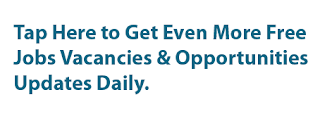Company Overview:
About Palladium – Palladium is a global leader in the design, development and delivery of Positive Impact – the intentional creation of enduring social and economic value. We work with governments, businesses, and investors to solve the world’s most pressing challenges. With a team of more than 3,000 employees operating in 90 plus countries and a global network of over 35,000 experts, we help improve economies, societies and, most importantly, people’s lives.
Diversity, Equity & Inclusion – We welcome applications from all sections of society and actively encourage diversity to drive innovation, creativity, success and good practice. We positively welcome and seek to ensure we achieve diversity in our workforce; and that all job applicants and employees receive equal and fair treatment regardless of their background or personal characteristics. These include: (but are not limited to) socio-economic background, age, race, gender identity, religion, ethnicity, sexual orientation, disability, nationality, veteran, marital or Indigenous status.
Should you require any adjustments or accommodations to be made due to a disability or you are a neurodivergent individual or any other circumstance, please email our team at accessibility@thepalladiumgroup.com
Safeguarding – We define Safeguarding as “the preventative action taken by Palladium to protect our people, clients and the communities we work with from harm”. We are committed to ensuring that all children and adults who come into contact with Palladium are treated with respect and are free from abuse. All successful candidates will be subject to an enhanced selection process including safeguarding-focused interviews and a rigorous due diligence process.
Project Overview and Role:
Primary Duties and Responsibilities:
By end of 2020, 38 of the 45 countries which made commitments to the FP2020 partnership had developed their first or second Costed Implementation Plan (CIPs). Regular and systematic monitoring of CIPs can help countries to better manage execution of their plans by generating insights on areas that are advancing or lagging, while identifying and handling risks that can limit success. Through a stakeholder-inclusive process, CIP performance monitoring can also enhance accountability to achieve national goals and global commitments. Further, performance monitoring can help countries be more efficient in resource allocation, allowing stakeholders to better align funding with CIP priority areas and gain efficiencies.
With USAID funding, HP+ defined a process for monitoring performance of a CIP, and developed a performance monitoring tool, referred to as the CIP Performance Dashboard. supported 11 countries in building their CIP performance monitoring platforms (Benin, Cote d’Ivoire, Ghana, Guinea, Liberia, Malawi, Mali, Madagascar, Niger, Tanzania, and Togo). HP+ has supported the development of key performance indicators and performance targets in these countries and has set up the Microsoft Excel dashboards in Mali, Malawi, Tanzania, and Togo and web-based dashboards in Ghana and Madagascar
HP+ now intends to assess and document stakeholders’ perspectives on the relevance, ease of use, and utility of the tool (i.e., the CIP dashboard) and process (data collection, analysis and review) in supporting CIP performance monitoring; in addition, HP+ plans to collect information to understand how the data generated has facilitated decision-making related to improving coordination and resource mobilization or allocation.
Tanzania is one of the countries selected to undertake this assessment. The country adopted the excel-based dashboard in 2019 and is currently working on setting up its web-based dashboard. By mid-October 2021, Tanzania would have conducted two performance review meetings. USAID, through the Health Policy Plus (HP+) project, worked with the Reproductive and Child Health Section and partners to develop key performance indicators to monitor execution of the key results identified in the CIP.
Scope of Work
HP+ is seeking consultancy support to conduct key informant interviews (KIs) to inform the objectives of this assessment. HP+ envisions the consultant to conduct KIs with at least five stakeholders, including the government lead focal point persons for the CIP, FP monitoring, and routine health data, as well as representatives from implementing partners, civil society, and development partners.
As a deliverable, HP+ will require the consultant to submit an audio recording and transcript for each interview conducted, and a 1–2-page summary of findings from the interviews.
Period of Performance: Oct 15 – Nov 30 2021
Required Qualifications:
- Demonstrated knowledge of the Tanzania family planning program and stakeholders.
- At least 5-years experience in qualitative research, and particularly in conducting in-depth interviews with policy-maker and program managers.
- Experience interacting with host country government agencies including local governments, development partners, and civil society organizations
- Attention to detail and ability to effectively and efficiently perform multiple tasks and balance competing priorities while meeting deadlines.
- Based in Tanzania and proficient in speaking and writing in French and English.
Evaluation Criteria:
Experience (30%)
- Work experience in the Tanzania family planning program
- Work experience interacting with host country government agencies including local governments, development partners, and civil society organizations
Technical (50%)
- Demonstrable experience in qualitative research, and particularly in conducting in-depth interviews with policy-maker and program managers.
Cost (20%)
- Please submit requested rate with application
Explore Other NGO Job Vacancies Here
Have a look at Other Jobs Opportunities in Dar es Salaam Here














